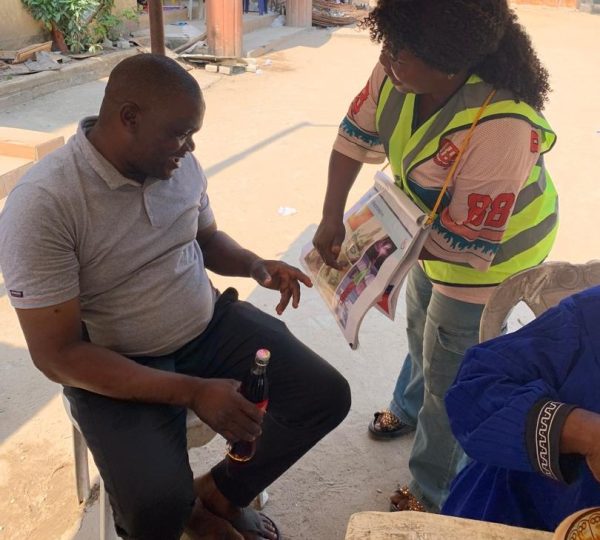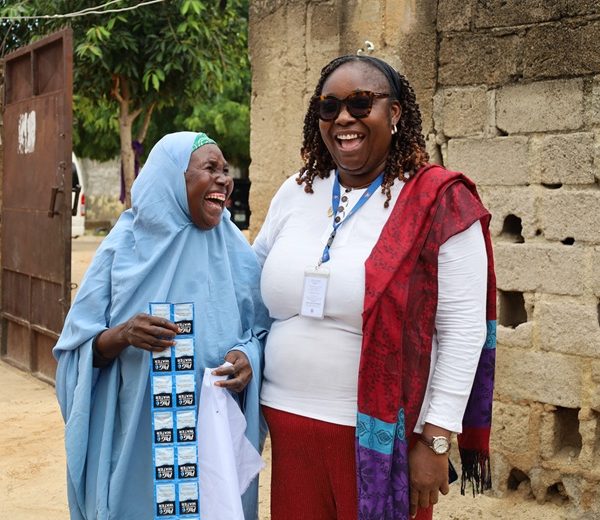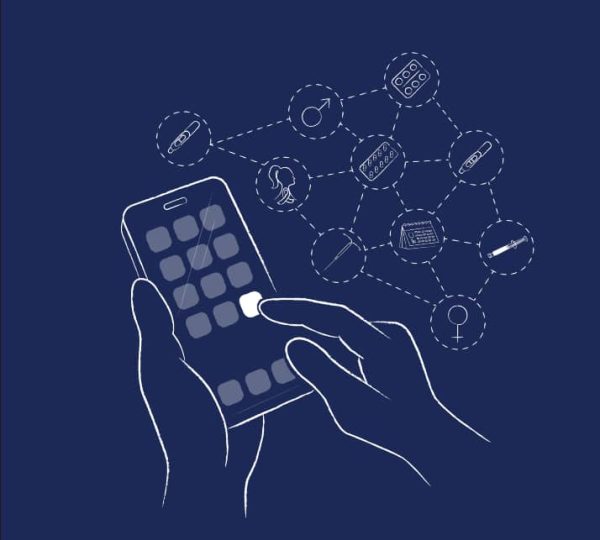Empowering Diabetes Management in Nigeria: Innovations for Primary Care
By Victory Emilomo Oaikhena, SFH Legal Officer
Every year on November 14, World Diabetes Day is globally observed to raise awareness about diabetes. In Nigeria, diabetes has rapidly emerged as a significant health concern, with rising prevalence rates driven by urbanization, lifestyle changes, and genetic factors. Managing diabetes in Nigeria presents distinct challenges, particularly within primary care settings where resource limitations, limited access to specialized care, and varying levels of health literacy impact treatment outcomes. Primary care providers play a critical role, often being the only regular point of contact for many diabetes patients. While traditional management in Nigeria has focused on periodic glucose testing, medication prescriptions, and lifestyle guidance, advancements in diabetes care are introducing new tools and strategies that could transform care delivery, even in resource-limited environments.
As Nigeria joins the global observance of Diabetes Awareness Month this November, it is crucial to explore how emerging technologies, and innovative treatments can enhance diabetes management in the country’s healthcare system. The increasing availability of telemedicine in Nigeria could help bridge gaps in healthcare access, connecting patients in rural or underserved areas to primary care providers. This article discusses key innovations that have the potential to reshape diabetes care and prevention in Nigeria’s primary care sector.
The Growing Burden of Diabetes in Nigeria
According to the World Health Organization (WHO), Nigeria is experiencing one of the fastest-growing diabetes epidemics in Africa, particularly with the sharp rise in Type 2 diabetes cases. Over 4 million adults in Nigeria are affected by diabetes, and this number is expected to grow as urbanization, changes in diet, and greater consumption of processed foods contribute to higher incidence rates. This escalating prevalence poses serious challenges, not only for individuals and families but also for the economy, with long-term care costs, productivity losses, and complications such as heart disease, kidney failure, and nerve damage. The increasing number of diabetes cases emphasizes the urgent need for preventive measures, early diagnosis, and effective treatment strategies to prevent severe health complications.
- Diabetes and Urbanization: As more people migrate to urban areas, sedentary lifestyles and poor dietary habits are becoming more common. Traditional, fiber-rich diets are being replaced with Western-style diets, which contribute to increased blood sugar levels and weight gain. Urban living also leads to higher stress levels and irregular eating habits, further elevating the risk of diabetes.
- The Dual Epidemic: While infectious diseases like malaria and tuberculosis have historically been the focus of public health efforts, the rise in diabetes has stretched healthcare resources. Hospitals may lack sufficient equipment for continuous glucose monitoring, insulin, or trained staff in diabetes management. Public health campaigns often prioritize infectious diseases, which are seen as more immediate threats, leaving chronic conditions like diabetes under addressed, despite their long-term health consequences.
- Diagnosis and Treatment Gaps: Many Nigerians remain unaware they have diabetes until severe symptoms or complications arise, due to a lack of awareness and limited healthcare access. People living in rural areas face additional challenges due to fewer healthcare facilities and a shortage of trained diabetes specialists.
Revolutionizing Diabetes Care and Prevention
Limited access to care, particularly in rural regions, is one of the biggest challenges in diabetes management in Nigeria. Diagnostic services, insulin, and other essential diabetes medications are often unavailable or unaffordable. Consequently, many people only receive care when the disease has advanced, making treatment more difficult and costly. To address these challenges, innovative and inclusive strategies are needed to improve diabetes prevention, diagnosis, and treatment.
Below are several solutions that will help combat the diabetes crisis in Nigeria:
Expanding Mobile Health Clinics: Many Nigerians live in areas with limited access to hospitals or clinics, making timely diagnoses, regular checkups, and adequate treatment difficult. Mobile health clinics, with proper planning, resources, and staffing, can travel to underserved regions to provide vital services such as diabetes screenings, education, and follow-up care. For Instance, Society for Family Health often supports the development of local healthcare facilities and provides mobile clinics that reach rural and underserved areas. These facilities offer primary care services, maternal and child health programs, and essential screenings.
Benefits:
- Identifying undiagnosed diabetes cases.
- Offering routine checkups, including blood sugar testing and assessments for complications like kidney or eye damage.
- Raising awareness about diabetes, its risk factors, and the importance of healthy living.
- Reducing the pressure on urban healthcare facilities.
- Making Diabetes Treatment Affordable: The high cost of essential diabetes medications, such as insulin and blood glucose test strip, poses a major barrier to treatment for low-income families. Subsidizing these medications would ensure that essential treatments are accessible to all Nigerians. The Nigerian government could collaborate with pharmaceutical companies to reduce medication costs and provide affordable or free treatments to vulnerable populations through corporate social responsibility initiatives.
Telemedicine and Mobile Health Applications: Telemedicine and mobile health apps are gaining traction in Nigeria, offering solutions for healthcare access, particularly in rural and underserved areas. For instance, SFH AccessCare is actively involved in this space, providing telemedicine services that facilitate virtual consultations. These services enable doctors to assess patients’ conditions, offer advice, and prescribe medications remotely, improving access to healthcare for many Nigerians.
-
- Telemedicine: Virtual consultations through video calls, messaging, and online platforms enable doctors to assess patients’ conditions, offer advice, and prescribe medications remotely.
- Mobile Health Apps: Several apps and smartwatches designed for diabetes management help individuals track their blood glucose levels, access educational resources, and receive medication reminders.
AI-Driven Diagnostics and Monitoring: Artificial Intelligence (AI) is transforming healthcare and can be used particularly in resource-constrained settings like Nigeria. AI systems can analyze medical data to improve diagnosis and monitoring, making diabetes care more accurate and efficient.
-
- AI-Powered Diagnostic Tools: AI can predict complications such as diabetic retinopathy, kidney disease, and neuropathy, enabling early intervention and improving diabetes management.
- AI-Enabled Kiosks: AI-powered kiosks in hospitals can automate blood sugar tests and provide instant results, reducing wait times and improving patient satisfaction. These kiosks also offer initial recommendations based on the data, further enhancing access to timely care.
SMS and IVR Programs: For individuals without smartphones or internet access, SMS and Interactive Voice Response (IVR) programs offer alternative means for diabetes management and education.
-
- SMS Programs: SMS reminders can help patients stick to treatment regimens, track blood sugar levels, and adopt healthier lifestyle choices. SMS is an effective communication tool, especially in remote areas with limited healthcare facilities.
- IVR Programs: IVR systems provide automated health tips and reminders in multiple languages, ensuring that critical health information reaches a wide audience, including illiterate individuals or those who speak local languages.
By integrating these innovative approaches, Nigeria can expand access to diabetes care and improve management, even in remote or underserved regions. However, implementing these solutions will require significant investment, sector-wide collaboration, and political support. On World Diabetes Day, Nigeria’s commitment to empowering health serves as a reminder for all stakeholders to prioritize diabetes care. With stronger healthcare infrastructure and a focus on addressing Nigeria’s unique risk factors, the country can better support individuals living with diabetes.





